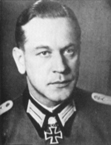Kull
Posts: 2625
Joined: 7/3/2007
From: El Paso, TX
Status: offline

|
quote:
ORIGINAL: awaw
I believe what rustysi is saying is that:
1. Normally a pilot has an average 30 air skill.
2. By forcibly “graduating” him before that, he will have ,say, 20 air skill.
3. Somehow, somewhere, you will have to train him on-board, and taking him the extra distance from 20 to 30 skills costs supplies.
4. 20-30 skill is fast, but still a supply cost somehow
Before responding, it's important that we look at the in-game training status visuals and (in combination with a few quotes from the coder & Alfred) try to determine what they mean. The attachment is the the Scenario 1 Japanese pilot training graphic as of 12/9/41. It shows pilot classes grouped by quarter, in which the "Average Experience level" is that of all pilots in three different classes. Each month, a new class is inducted and one of the classes in each quartile will carry it's unknown average into the next quartile, while the 12th month class (and it's unknown average) will graduate.
Accordingly, when the attachment tells us that the last IJA class has an average of 29, you can bank on the fact that "class 12" is higher, but that's all you can know. The Devs probably used this mechanism to obscure the specifics of the data for each class, so we can never know the average number of any one specific class (much less the distribution of per-pilot experience levels within each class).
The details are missing, but there are some things we can infer. Let's start by looking at the average experience for IJA pilots in each quartile:
1st Quartile group: 1 (+1)
2nd Quartile group: 12 (+11)
3rd Quartile group: 22 (+10)
4th Quartile group: 29 (+7)
Don't focus too much on the specific averages or even the rates of increase - it varies a LOT from one game and one time period to another. But what they all have in common (absent a ransacking of pre-graduate pilots by a desperate player), is that the total increase will be at least high 20's by the 4th Quartile. And remember that for many of the Allied nationalities (especially in the late war), the numbers will increase from single digits into the 40's. Thanks for bearing with me, because here's where that leads:
Quote #1:
quote:
ORIGINAL: michaelm75au
Adjustments to the pilot training happens on the first day of the month.
The monthly EXP increase of the raw pilots (ignoring TRACOM effect) is a random amount (-2 to +2).
If you just do the math - +2 as the max EXP increase per pilot per month over 12 months - there's no way you can get from 1 to 29 in a year. The luckiest pilot, who randomly gains +2 every single month, would wind up at 24. And what about all the guys getting a -2? This HAS to be a mechanism that derives a spread between the experience levels of individual pilots in each class, not the basis by which the entire class goes from 0 to "something less than 35" in 12 months. That mechanism is probably this:
Quote #2:
quote:
ORIGINAL: michaelm75au
The new monthly EXP starts out as an average of the pilots in the month and those moving from the previous month.
Although I can't wrap my head around the math which would make it work, one way or another the algorithm drives overall pilot experience higher than the +2/-2 mechanism (especially in classes 4-12). So how does TRACOM fit in? Two ways - the first of which relates directly to Quote #2 above:
Quote #3:
quote:
ORIGINAL: michaelm75au
The number of TRACOM guys can increase the month's EXP rating of the raw pilots.
If the new EXP exceeds the national EXP, then a random number of pilots will 'graduate' early.
A rough guide is: for every 10 in TRACOM (of the correct nationality), the monthly EXP might be increased by one.
Read that carefully and then read it again. He's not talking about quartiles or the graduating class per se, but rather "the month's EXP rating of the raw pilots". Whether that's "per pilot" or "per class" is not clear, but either way it happens to each class-or-pilot EVERY MONTH. The operative word is "can", so it's not guaranteed, but 12 times is a LOT of opportunities for increase. In particular it's huge if this drives the overall class number higher in a month, because (according to Quote #2) it affects not just this class but all those "moving from the previous month".
For the second TRACOM benefit, we have this :
Quote #4:
quote:
ORIGINAL: Alfred
Graduating pilots come out with experience which is within a range +/- of the national average. Having pilots in Tracom will aid reducing the negative spread but will not boost them to above the national average.
Alfred
This statement clearly applies to the +2/-2 effect (see Quote #1) which is intended to expand the experience delta between the pilots in EACH class, not just the graduating class. In particular it "reduces the negative spread", which - at the most simplistic level - would have to mean that it's driving the overall average experience higher. Is that per month, per pilot, per class? Don't know, but it's not a bad thing, and almost certainly contributes to the Quote #2 mechanism.
Which finally brings us back to this:
1. Normally a pilot has an average 30 air skill.
- We don't actually know what that number is (as explained above), but for sake of argument, OK.
2. By forcibly “graduating” him before that, he will have ,say, 20 air skill.
- Absolutely not. As shown above, the TRACOM mechanism doesn't work by slashing months off the graduation time of some random individual or even an entire class (which seems to be your assumption), but rather looks to see "if the new EXP exceeds the national EXP, then a random number of pilots will 'graduate' early". The guys graduating early CANNOT be "20" because they are part of a class which has an overall average that "exceeds the national EXP" (not something that's going to happen if the class is populated by pilots with a "20" EXP level)
3. Somehow, somewhere, you will have to train him on-board, and taking him the extra distance from 20 to 30 skills costs supplies.
4. 20-30 skill is fast, but still a supply cost somehow
- Both statements are false, since they follow-on from the assumption in #2 that the average experience of "early graduates" is less than that of those who spend 12 months in training. In fact, as per Quote #4, the reverse is true since the 2nd TRACOM mechanism improves the experience numbers for the guys at the bottom of the graduating class. Which means that graduates assisted by TRACOM should require LESS, not more, supply to train further.

 Attachment (1) Attachment (1)
< Message edited by Kull -- 2/14/2020 6:13:46 AM >
_____________________________
|
 Printable Version
Printable Version


















 New Messages
New Messages No New Messages
No New Messages Hot Topic w/ New Messages
Hot Topic w/ New Messages Hot Topic w/o New Messages
Hot Topic w/o New Messages Locked w/ New Messages
Locked w/ New Messages Locked w/o New Messages
Locked w/o New Messages Post New Thread
Post New Thread